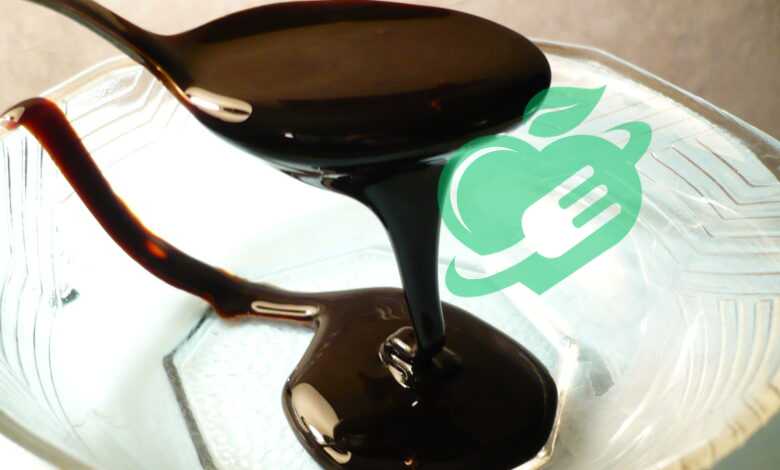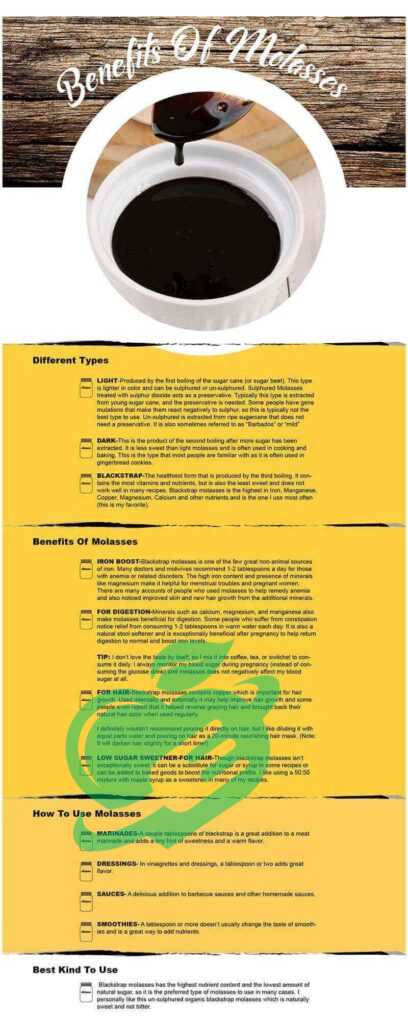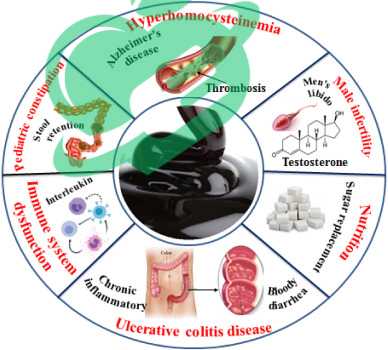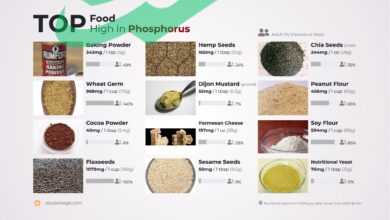Redefining Sweetness: The Transformative Health Benefits of Molasses

Understanding Molasses
Molasses is often considered a hidden gem in the world of sweeteners and health foods. For many people, it may evoke memories of their grandmother’s baking or homemade gingerbread cookies, complete with that rich, dark sweetness. However, beyond its flavorful profile lies a fascinating history and a host of nutritional benefits that deserve a closer look.
Definition and Origins of Molasses
Molasses is a sticky by-product derived from the processing of sugar cane or sugar beets. When sugar is extracted from these plants, it is what remains after the sugar crystals have been removed. This dark, syrupy substance is rich in flavor and nutrients, making it popular in cooking and baking. Its origins can be traced back thousands of years. It is believed to have been used by the ancient Greeks and Romans, and it played an important role in the Caribbean economy during the colonial period. The process of its production has remained relatively constant over the years:
- Harvesting: Sugarcane or sugar beets are harvested and crushed to extract the juice.
- Boiling: The juice is boiled to evaporate water, encouraging crystallization of sugar.
- Separation: The sugar crystals are separated from the liquid, and the remaining syrup is molasses.
Different types of molasses can be characterized by their extraction phases:
- Light molasses: This results from the first boiling and has the highest sugar content. It is mild in flavor and often used in lighter desserts.
- Dark molasses: From the second boiling, this variety has a stronger taste and is commonly used in rich recipes like baked beans and gingerbread.
- Blackstrap molasses: The result of the third boiling, blackstrap is the most concentrated in nutrients and has a bold flavor, making it a favorite among health enthusiasts.
Understanding molasses is not only about its origins but also about its considerable nutritional profile.
Nutritional Value of Molasses
Molasses is more than just a sweetener; it’s a powerful source of nutrients essential for good health. While it’s often outdone by white sugar, it has some amazing nutritional benefits. Here’s a closer look at what makes it such a strong contender in the nutrition arena:
- Rich in Vitamins and Minerals: Molasses is loaded with vitamins such as B6 and minerals like calcium, magnesium, potassium, and iron. This makes it a fantastic addition to a well-rounded diet, especially for those who have higher iron requirements, like pregnant women or athletes.
- Antioxidant Properties: It contains antioxidants, which help combat oxidative stress in the body. Regularly consuming antioxidants is vital for reducing the risk of chronic illnesses, such as heart disease and cancer.
- Natural Energy Source: The natural sugars in molasses provide a quick energy boost, making it a great option for athletes before a workout or anyone needing a pick-me-up throughout the day.
- Low Glycemic Index: Unlike refined sugars that can cause spikes in blood sugar levels, molasses has a lower glycemic index. This means it’s absorbed more slowly, providing sustained energy without the crash.
Here’s a snapshot of the nutritional value of blackstrap molasses, one of the most nutrient-rich varieties:
| Nutrient | Per Tablespoon (15g) |
|---|---|
| Calories | 60 |
| Carbohydrates | 15.4g |
| Iron | 3.6mg (20% DV) |
| Calcium | 100mg (10% DV) |
| Magnesium | 48mg (12% DV) |
| Potassium | 210mg (6% DV) |
| Manganese | 0.3mg (15% DV) |
It is a dietary addition that can be both beneficial and delicious. For example, adding a tablespoon to your morning oatmeal or baking it into a loaf can elevate the taste of the meal while providing valuable nutrients. As people become more aware of the benefits of natural food, its popularity is also regaining. It is not just a historical relic but a modern staple that families can enjoy. By understanding its origins and nutritional value, individuals can make informed choices about how to incorporate it into their diets. In the next section, the focus will shift to the health benefits of molasses, exploring how it can aid in overall wellness and boost daily nutrient intake. Whether one is looking for a natural sweetener or a health boost, it is poised to be a valuable addition to any pantry.

Health Benefits of Molasses
Now that we’ve explored the definition of molasses and its nutritional value, it’s time to delve into the amazing health benefits this nutrient-rich syrup can offer. From being a source of essential nutrients to providing antioxidant properties and regulating blood sugar, it can be more than just a delicious ingredient—it can be a vital part of a healthy lifestyle.
Read also : Health Advantages of Borage
Source of Essential Nutrients
One of the most important qualities of molasses is its rich content of essential nutrients. While many people think of it as just a sweetener, it is rich in vitamins and minerals that can contribute significantly to improving overall health.
- Iron: Blackstrap molasses is an excellent source of iron, which is crucial for the formation of red blood cells. A tablespoon of blackstrap molasses offers about 20% of the daily value for iron. This can be especially beneficial for individuals with iron-deficiency anemia or those who are pregnant.
- Calcium: Molasses also contains calcium, which is vital for strong bones and teeth. Along with helping to prevent osteoporosis, calcium plays a role in nerve transmission and muscle function.
- Magnesium: A single serving of molasses contains a good amount of magnesium, known for its various roles in maintaining normal muscle and nerve function, regulating blood pressure, and supporting the immune system.
- Potassium: Potassium helps to regulate fluid balance and muscle contractions, making it an essential nutrient for athletes or anyone leading an active lifestyle.
When Marie, a busy mom and fitness enthusiast, decided to experiment with molasses, she was surprised by how easily she could incorporate it into her family’s diet. “I started adding it to smoothies and energy bars,” she shared. “Everyone loves it, and I feel good knowing they’re getting much-needed nutrients.” Here’s a quick breakdown of some key nutrients found in molasses:
| Nutrient | Function |
|---|---|
| Iron | Supports red blood cell production |
| Calcium | Crucial for bone health and muscle function |
| Magnesium | Aids in energy production and enzyme function |
| Potassium | Helps regulate fluid balance in the body |
Antioxidant Properties
Beyond its nutrient density, molasses boasts impressive antioxidant properties. Antioxidants are crucial for neutralizing free radicals in the body, which are compounds that can cause oxidative stress leading to cell damage.
- Combatting Oxidative Stress: The antioxidants in molasses, such as phenolic compounds, can help reduce inflammation and lower the risk of chronic diseases like heart disease and diabetes.
- Promoting Heart Health: Regular consumption of antioxidants has been linked to improved heart health. By reducing cholesterol levels and blood pressure, antioxidant-rich foods like molasses can contribute to maintaining a healthy cardiovascular system.
Many people don’t realize that adding antioxidant-rich foods to recipes can be as simple as replacing refined sugar with a natural sweetener like molasses. For example, Angela, a health-conscious baker, says, “I started using it in place of white sugar in my recipes, and not only does it taste better, but I’m giving my family something with health benefits.” Here’s a short list of antioxidant-rich foods, including molasses:
- Dark chocolate
- Berries (blueberries, strawberries)
- Nuts (walnuts, pecans)
- Green leafy vegetables (spinach, kale)
- Molasses
Potential Blood Sugar Regulation
One key aspect that has garnered interest around molasses is its potential for promoting healthy blood sugar levels. Unlike refined sugars that can cause rapid spikes in blood glucose, molasses has a relatively low glycemic index. This means it is absorbed slowly, providing a more stable source of energy.
- Slow Release of Energy: This can be particularly advantageous for individuals with diabetes or those looking to manage their weight. By providing a steady release of energy, molasses may help reduce cravings and prevent overeating.
- Nutritional Support: The presence of minerals like chromium in molasses has also been suggested to support blood sugar regulation. Chromium can enhance the body’s insulin sensitivity, making it easier for your body to manage blood sugar levels.
“I’ve been incorporating it into my diet as a sweetener and a source of nutrients,” explains John, who is diabetic. “I feel more stable throughout the day, and I’ve noticed better blood sugar control.” As with any dietary changes, it’s important to consult with a healthcare professional, especially if there are underlying health conditions such as diabetes. However, adding it to your diet can be a simple yet impactful step toward improving your health. In short, molasses is not just a fun addition to recipes, but a source of essential nutrients, antioxidants, and blood sugar regulation. It’s time to consider this humble syrup as an ally on your health journey. In the next section, we’ll explore how to incorporate it into a healthy diet through different uses and recipes that showcase its versatility and flavor.

Incorporating Molasses into a Healthy Diet
After exploring the many health benefits of molasses, it’s clear that this syrup offers a wealth of nutrients and benefits. Now, let’s delve into how to incorporate it into a healthy diet. Whether you’re a seasoned chef or just starting out on your culinary journey, there are plenty of delicious ways to enjoy molasses, from decadent desserts to savory dishes.
Culinary Uses of Molasses
Molasses is remarkably versatile, making it an appealing addition to various recipes. Its unique flavor profile falls somewhere between sweet and slightly bitter, with a rich, deep color that can enhance the visual appeal of any dish. Here are some popular culinary uses for molasses:
- Baking: Molasses is frequently used in baking, particularly in recipes for cookies, cakes, and breads. It adds moisture and depth of flavor.
- Sweetener for Beverages: Whether in hot tea, coffee, or smoothies, molasses can replace refined sugars, providing a unique taste along with its health benefits.
- Marinades and Dressings: Incorporate molasses into marinades or salad dressings for a sweet and tangy twist. It pairs wonderfully with vinegar and mustard.
- Sauces: Use molasses as a base in barbecue sauces or glazes, enhancing the flavor of grilled meats and vegetables.
- Oatmeal and Cereal: Drizzling molasses over oatmeal or mixing it into breakfast cereals adds both sweetness and nutrients to your morning routine.
As Jane, a food enthusiast and home cook, puts it, “I started using molasses in my morning oatmeal, and it gives that comforting, homey feel while providing a good energy boost for my busy day.”
Recipes and Dishes Featuring Molasses
Now that you’ve seen some of the culinary uses, here are a few easy and delightful recipes that incorporate molasses, ensuring you enjoy its benefits in a tasty way. 1. Molasses Ginger Cookies These chewy cookies deliver a punch of flavor with the warmth of ginger and the richness of molasses. Ingredients:
- 1 cup all-purpose flour
- 1/2 cup unsulfured molasses
- 1/2 cup brown sugar
- 1/2 cup butter (softened)
- 1 tsp baking soda
- 1 tbsp ground ginger
- 1 tsp cinnamon
- 1/2 tsp salt
- 1 egg
- Instructions:
- Preheat the oven to 350°F (175°C).
- Cream the butter and brown sugar together. Add molasses and egg, mixing well.
- In another bowl, combine the dry ingredients: flour, baking soda, ginger, cinnamon, and salt.
- Gradually add the dry mixture to the wet ingredients, stirring until combined.
- Drop spoonfuls of the dough onto a baking sheet and bake for 10-12 minutes.
2. Sweet and Savory Molasses Glazed Brussels Sprouts These roasted Brussels sprouts make a delightful side dish packed with flavor. Ingredients:
- 1 lb Brussels sprouts (halved)
- 2 tbsp olive oil
- 2 tbsp molasses
- Salt and pepper to taste
- 1 tbsp balsamic vinegar
Instructions:
- Preheat the oven to 400°F (200°C).
- Toss the Brussels sprouts with olive oil, molasses, salt, and pepper in a bowl until evenly coated.
- Spread the sprouts on a baking sheet and roast for 20-25 minutes, stirring halfway through.
- Drizzle with balsamic vinegar before serving.
3. Molasses-Infused Overnight Oats Start your day right with these nutritious and easy overnight oats. Ingredients:
- 1/2 cup rolled oats
- 1 cup milk (dairy or non-dairy)
- 2 tbsp molasses
- 1/2 banana (sliced)
- Nuts or seeds for topping
- Instructions:
- In a jar or container, combine oats, milk, and molasses. Mix well.
- Add banana slices on top, cover, and refrigerate overnight.
- In the morning, stir and top with your choice of nuts or seeds.
By incorporating these delicious recipes into your diet, you can enjoy its benefits while also savoring its unique flavor. As Mark, who recently started cooking with it, puts it, “I’ve found that my meals are not only tastier, but also a little healthier. It’s a win-win situation!” With the endless possibilities for cooking and baking with molasses, there’s something for everyone—whether they’re aiming for a healthy lifestyle or simply looking to explore new flavors. It also stands out as an easy-to-use ingredient that enhances both taste and nutrition. As a rich and versatile ingredient loaded with health benefits, it can fit seamlessly into any diet. Next, we’ll look at the role of molasses in alternative medicine, examining its historical uses and modern applications as a natural remedy.

Molasses in Alternative Medicine
After exploring the culinary benefits and delicious ways to incorporate it into your daily diet, it’s worth noting that this powerful drink has a long history in alternative medicine as well. From ancient remedies to modern holistic practices, the applications of molasses span generations and cultures. Let’s take a closer look at the historical uses of molasses for health and its potential modern applications in natural remedies.
Read also : The Ultimate Vitex Agnus Castus Handbook: Tips and Tricks Revealed
Historical Uses of Molasses for Health
Its use in alternative medicine also dates back centuries when it was used for its supposed health benefits. Ancient cultures valued molasses not only as a food source but also for its medicinal properties.
- Traditional Remedies: Various cultures used molasses as a tonic. In the Caribbean, it was often given to children to promote growth and energy. It was also believed to help with common ailments such as coughs and digestive issues.
- Blood Builder: Historically, molasses has been recommended as a remedy for anemia due to its rich iron content. In many households, a spoonful of molasses was a common advice for women during menstruation or pregnant women to help boost their iron levels.
- Laxative Effects: Thanks to its high levels of magnesium and potassium, it is also known for its natural laxative properties. It was often used to relieve constipation, helping to maintain regular bowel movements.
- Energy Booster: In past generations, especially among hard-working communities, molasses was viewed as an energy booster, allowing people to sustain their stamina through long days of labor.
Grandma Lucy, who often told us about her youth in the rural South, vividly recalled how her mother would give her a dose of it every week: “It kept you strong and gave you the energy to run around all day.” This family tradition is just one small example of how it has historically found its place as a remedy across generations.
Modern Applications in Natural Remedies and Therapies
Today, the use of molasses in alternative medicine continues to be explored and embraced. Many health practitioners and holistic enthusiasts advocate for its incorporation due to its numerous health properties.
- Cough Relief: Some modern herbalists recommend molasses as a natural cough remedy. Mixed with warm water or herbal teas, it soothes the throat while providing a touch of sweetness. The soothing effect of molasses on the throat can be a comforting addition to homemade cough syrups.
- Detoxification: Some advocates claim that molasses can assist in detoxifying the body. The minerals and antioxidants found in molasses are believed to aid the liver in processing toxins efficiently, promoting overall health.
- Skin Care: The moisturizing properties of molasses make it a potential ingredient in natural skin care. Some individuals use it in face masks to help treat dry skin or as a gentle exfoliant due to its natural acids. Anecdotal evidence suggests that molasses can help improve skin tone and clarity.
- Nutritional Supplement: Given its rich nutrient profile, molasses is frequently recommended as a dietary supplement in various forms, such as in smoothies, energy bars, or simply as a spoonful taken directly. It is especially advised for individuals recovering from illness or anyone looking to enrich their diet naturally.
- Weight Management: Some studies even suggest that molasses may play a role in weight management by promoting healthy digestion and potentially regulating blood sugar levels, keeping hunger at bay.
Karen, a nutritionist who recommends its active sugar to her clients, shares her enthusiasm: “When I introduce sugar as a nutritious addition to their diet, I always see their interest soar! They appreciate learning how such a simple ingredient can have such a range of health benefits.” While scientific research specifically on molasses is limited, historical knowledge combined with modern experiences has kept the drink relevant to today’s health discussions. Despite its many beneficial properties, it’s important to approach molasses with a balanced approach. As with any natural remedy, it’s important to consult with healthcare professionals, especially if there are existing health concerns or conditions. In conclusion, it continues to play a prominent role in alternative medicine, bridging the gap between history and modern wellness practices. Whether used as a sweetener or a therapeutic addition, it also reminds us that sometimes, nature provides the answers we seek. As we wrap up our exploration, remember that a small amount can provide big benefits, making it a fun and healthy option for all. In our final section, we’ll summarize the most important insights and value it brings as a staple in both the kitchen and medicine cabinet.




2 Comments